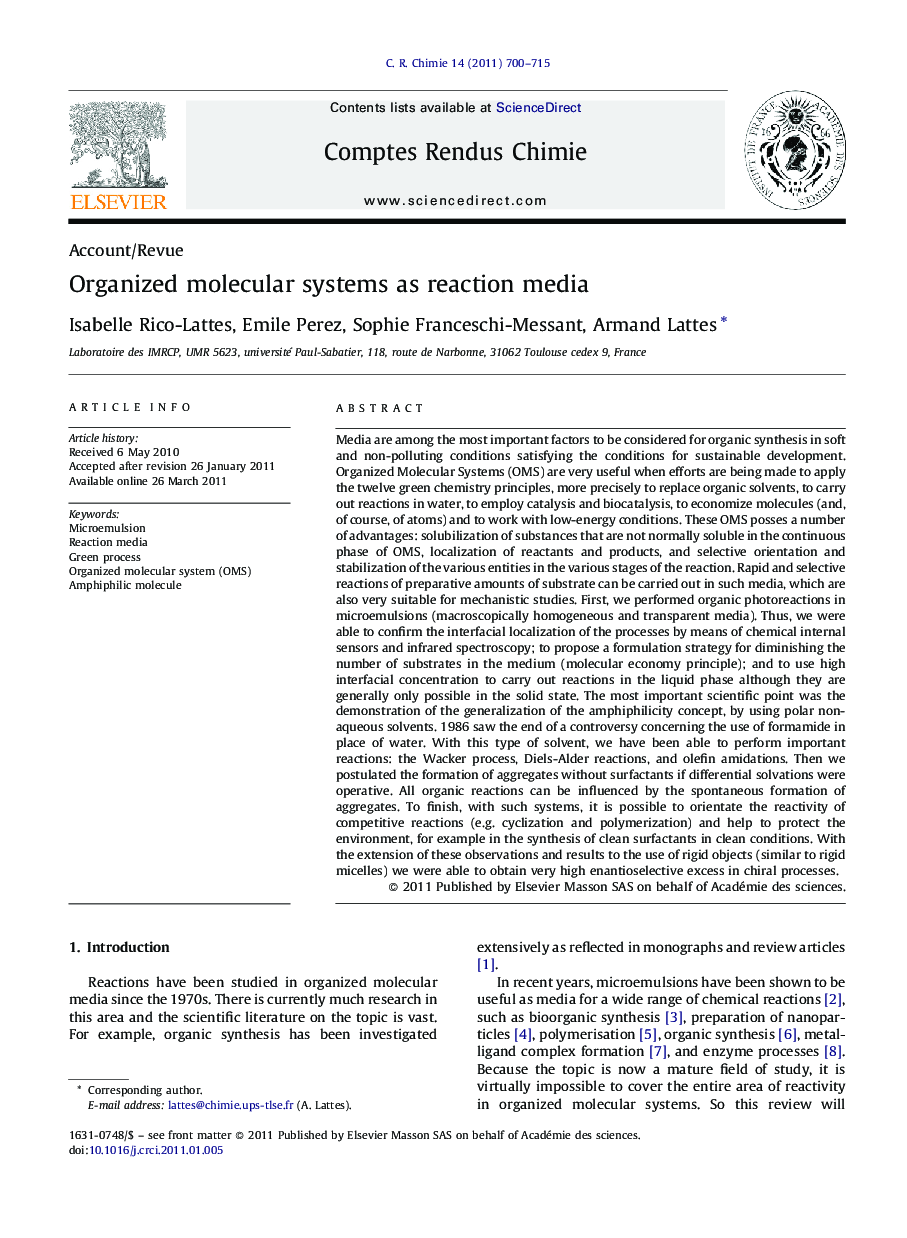| Article ID | Journal | Published Year | Pages | File Type |
|---|---|---|---|---|
| 170967 | Comptes Rendus Chimie | 2011 | 16 Pages |
Abstract
Media are among the most important factors to be considered for organic synthesis in soft and non-polluting conditions satisfying the conditions for sustainable development. Organized Molecular Systems (OMS) are very useful when efforts are being made to apply the twelve green chemistry principles, more precisely to replace organic solvents, to carry out reactions in water, to employ catalysis and biocatalysis, to economize molecules (and, of course, of atoms) and to work with low-energy conditions. These OMS posses a number of advantages: solubilization of substances that are not normally soluble in the continuous phase of OMS, localization of reactants and products, and selective orientation and stabilization of the various entities in the various stages of the reaction. Rapid and selective reactions of preparative amounts of substrate can be carried out in such media, which are also very suitable for mechanistic studies. First, we performed organic photoreactions in microemulsions (macroscopically homogeneous and transparent media). Thus, we were able to confirm the interfacial localization of the processes by means of chemical internal sensors and infrared spectroscopy; to propose a formulation strategy for diminishing the number of substrates in the medium (molecular economy principle); and to use high interfacial concentration to carry out reactions in the liquid phase although they are generally only possible in the solid state. The most important scientific point was the demonstration of the generalization of the amphiphilicity concept, by using polar non-aqueous solvents. 1986 saw the end of a controversy concerning the use of formamide in place of water. With this type of solvent, we have been able to perform important reactions: the Wacker process, Diels-Alder reactions, and olefin amidations. Then we postulated the formation of aggregates without surfactants if differential solvations were operative. All organic reactions can be influenced by the spontaneous formation of aggregates. To finish, with such systems, it is possible to orientate the reactivity of competitive reactions (e.g. cyclization and polymerization) and help to protect the environment, for example in the synthesis of clean surfactants in clean conditions. With the extension of these observations and results to the use of rigid objects (similar to rigid micelles) we were able to obtain very high enantioselective excess in chiral processes.
Related Topics
Physical Sciences and Engineering
Chemical Engineering
Chemical Engineering (General)
Authors
Isabelle Rico-Lattes, Emile Perez, Sophie Franceschi-Messant, Armand Lattes,
